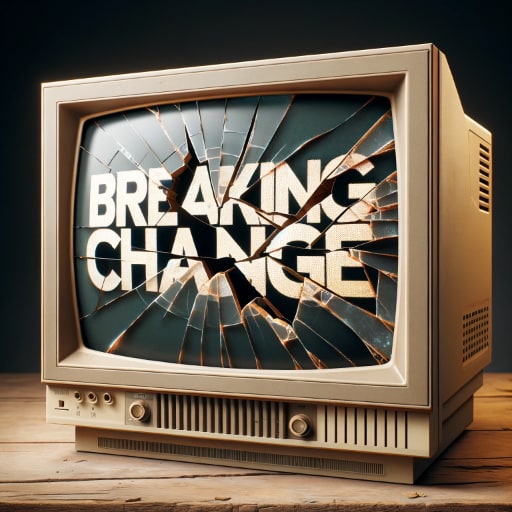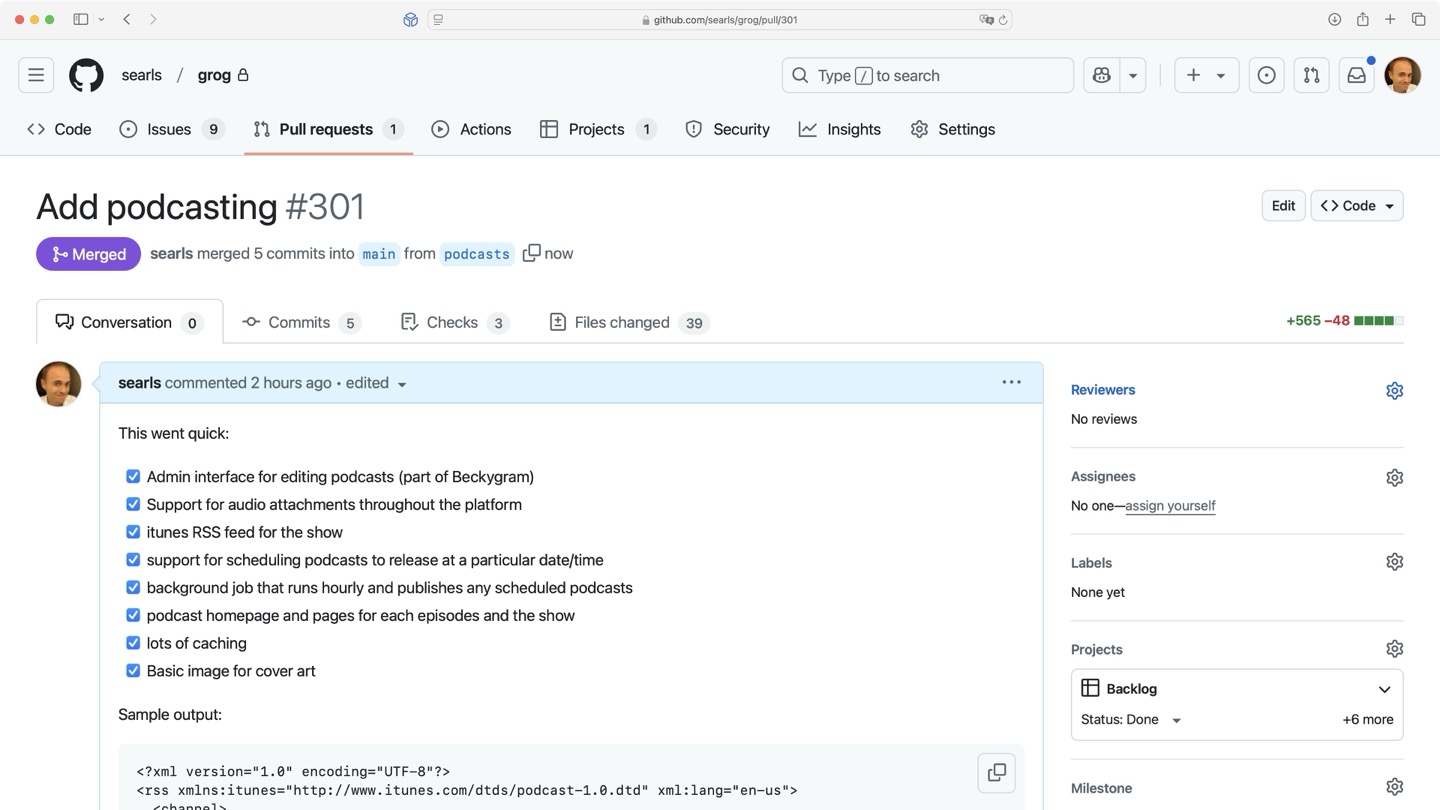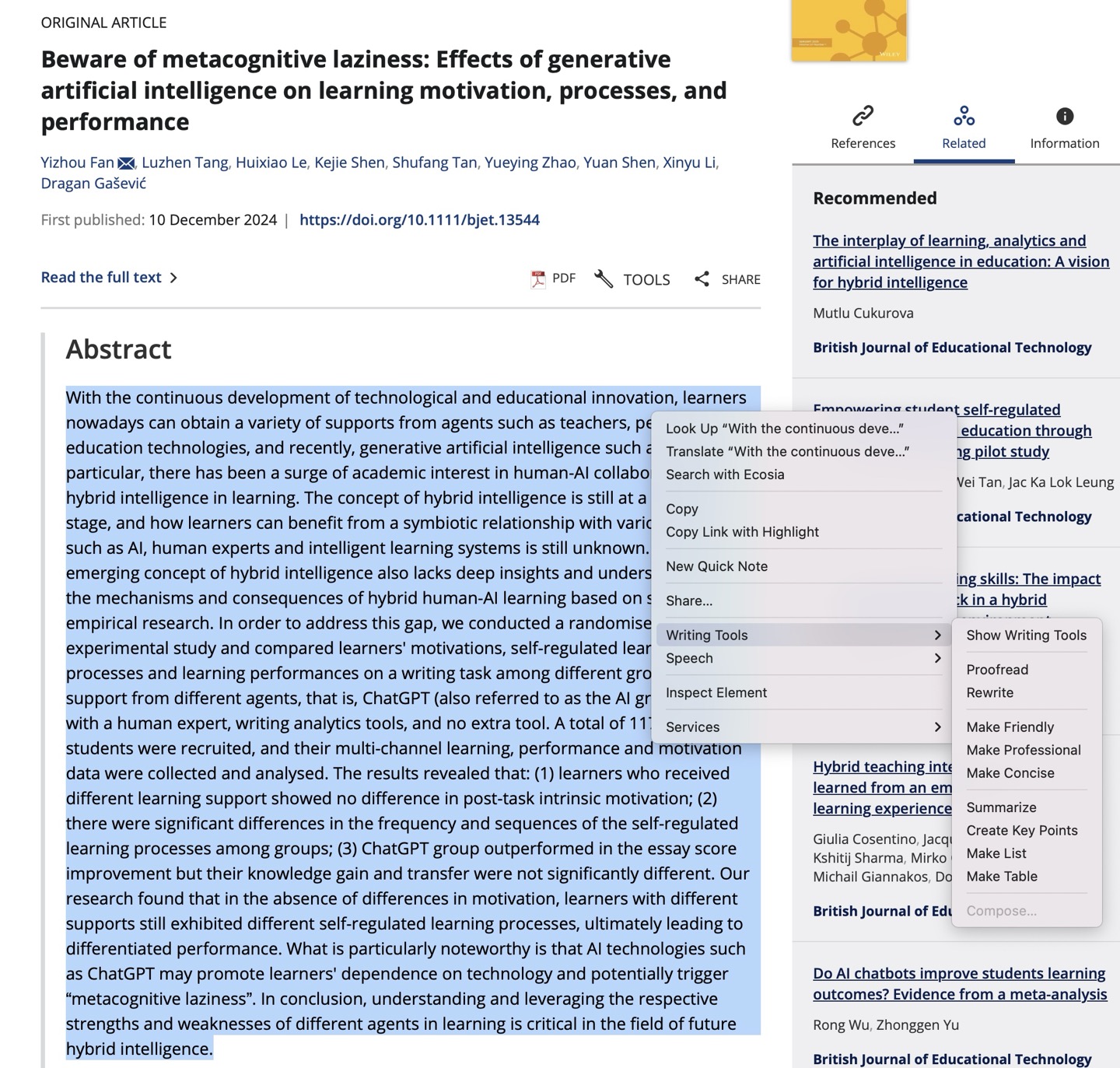
Rough month for the tech CEO whose future fortunes depend on us all believing AI innovation requires hundreds of billions of dollars of server farms timkellogg.me/blog/2025/02/03/s1

So impressed by my friend Nadia—she was featured on the Today show this morning for her remarkable success building The StoryGraph, which millions of people use to find their next favorite book! today.com/video/meet-the-woman-behind-the-popular-book-app-the-storygraph-231154757691
If you're here for the spicy, good news: you're gettin' it spicy.
I am usually joking, but I mean it this time: I'm going to stop doing this podcast if you don't write in to podcast@searls.co. Give me proof of life, that's all I need. I won't even read it on air if you don't want!
If you're not bored yet, click the links:
- Becky did a reel of our twin birthday cruise
- Aaron's puns, ranked
- Fewer than 200 people bought Resident Evil on iPhone
- Apple Invites and GroupKit are gonna save us from Doodle
- Apple cancels the AR glasses you hadn't heard about
- Android XR is even more of a rip-off than Android was
- Vision Pro is getting Unreal Engine support
- WTF is Deepseek
- My own declaration of competence
- I've started work on my first fuckthis.app, and it's already doing stuff
- Nintendo's Alarmo clock
- The Wild Robot is not as bad as it looks
- Star Trek Unification
- Persona 3 Reloaded
- Ninja Gaiden 2 Black
- Via Prem: Exit 8 and Platform 8
🌶️

Just a few days after launching my TOP SECRET syndication app with Bluesky support, I've written a new adapter for cross-posting to X. Updated the site's POSSE roundup accordingly: justin.searls.co/posse/
How to build a podcasting platform in under 8 hours
Last year at Rails World, I indulged in some horn tooting and victory-lap taking when I showed off the publishing platform and strength-training app I built to support Becky's business.
The paper-thin pretense of my talk was, "wow, look at how incredible Ruby on Rails is for empowering developers—even solo acts—to build ambitious products." And don't get me wrong, that was the main thesis. But the presentation was also an opportunity to show off my work and drop the mic.
As a consultant, I spent my entire career hearing how hard it is to build a real product. That as a Johnny-come-lately contractor, I could never know why things had to be slow. Or complicated. Or buggy. I lost track of how many times someone referenced Steve Jobs' epic judgment of consultants as the reason they wouldn't hire me on a contract basis and why I was only valuable if I joined their corporate family in W-2 matrimony.
Well, all that consultant FUD turned out to be bullshit. Simply by doing all the things I'd been telling others to do for two decades, I enjoyed the smoothest software development experience I've ever witnessed at any company of any scale. Literally everything went great. The resulting app looks, performs, and functions better than I ever imagined it would. My product owner / wife is thrilled with it. In its first 4 months on the market, only two bugs have been reported by customers and both were fixed in an hour or less.
Of course, one reason I held back on celebrating the success of my own ability to somehow form all the right opinions about good software was because it would have been premature. The true test of any software system is how easy it is to change later. Well, as you might be able to tell from the braggadocious tone of this post, I finally have an answer after delivering the platform's first major post-launch feature.
Becky has been wanting to start a podcast for a while, and given that we already had a bespoke CMS with her name on it lying around, it only made sense to try my hand at slotting in a podcast hosting component. I was nervous it'd take a while to get up to speed, as I hadn't touched the codebase in months. Nope: everything went so smoothly I can't believe I'm done already. the whole podcast system was finished in under 8 hours with plenty of time leftover to dunk on corporate America and the dysfunctional way seemingly every company on earth is intent on writing software.
Anyway, I've maintained a pretty meek stance over the years when it comes to dishing out categorical advice on how to write "good" software. Lots of disingenuous caveats like, "I've seen my approach work well, but maybe your solution is best for your situation." Most of that pussy-footing was born out of my own misplaced desire to please everyone. But at least some of my self-consciousness was on account of the narrative that consultants just couldn't hack it when it came to building something.
Well, I'm ready to call bullshit. Turns out, I'm better at building software than most people and, hell, most teams. If you want to get better at programming, the most important thing you can do is practice. But it wouldn't hurt for you to read or watch my stuff. 🎤🚮

I found myself wanting a commercial license that gave me a way to share my work, but which conferred literally no other privileges.
So I wrote a new one: the Fuck You Pay Me License github.com/searls/fypm

"How hard could it possibly be to truncate a string while making sure it doesn't cut off any URLs or hashtags?" he asked, ignorantly. gist.github.com/searls/9d8ee42929da99ae268477eb20818da6
New paper answers whether ChatGPT makes you lazier
Apple Intelligence summary of the abstract, which I couldn't be bothered to read:
A study comparing learners' motivations, self-regulated learning processes, and performance with different support agents (AI, human expert, writing analytics, or none) found no difference in motivation but significant differences in learning processes and performance. While AI support improved essay scores, it may also promote dependence and "metacognitive laziness."
In this episode: Justin goes to a birthday party, drives a Tesla, and configures your BIOS.
The compliments department is, as always, available at podcast@searls.co.
Have some URLs:
- This is the combination air fryer / grill I bought
- Microsoft dropped support for non-SecureBoot PC updates last month
- Aaron's puns, ranked
- Nobody Cares
- Things we learned about LLMs in 2024
- Judge ends man's 11-year quest to dig up landfill and recover $765M in bitcoin
- The Consensus on Havana Syndrome Is Cracking (News+)
- Meta kills diversity programs, claiming DEI has become "too charged"
- Google kills JavaScript-free searches
- Sonos still seems kinda fucked
- 5090s seem kind of like a scam
- The official Elder Scrolls: Oblivion remake leaked
- Switch 2 was unveiled
- Guy with 200bpm heart rate complains his watch isn't working (before admitting his heart isn't working)
- The Diplomat
- Conclave
- Severance Season 2 is out
- Marvel Rivals is a hit (with the Thirstlords)
- Indiana Jones and the Great Circle
- P.T.
- A Short Hike

Super Switch. There's a lot to unpack here (plan to record an episode of Breaking Change this weekend to discuss), but the biggest "surprise" is that this is the least surprising console Nintendo has ever designed. youtube.com/watch?v=itpcsQQvgAQ

Test Double is running a survey to better understand YOUR HOTTEST TAKES about software development. Please fill this out as accurately and spicily as possible 🌶️ forms.gle/UcnjShcTUxPVJmTm6


